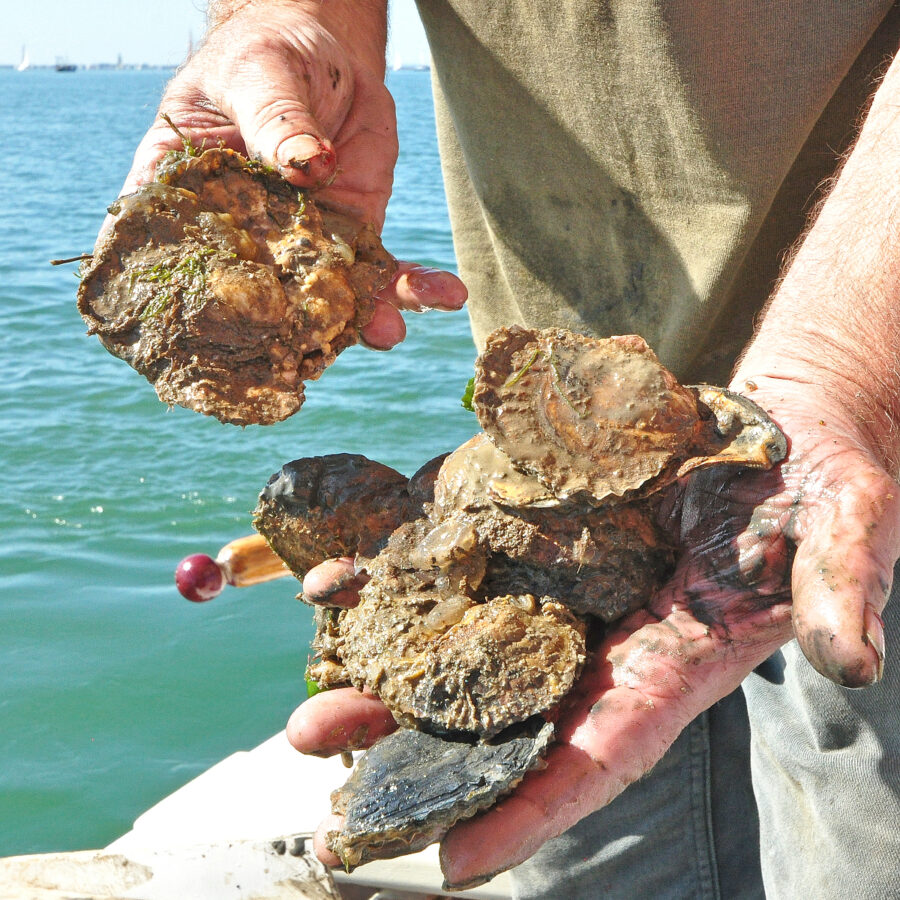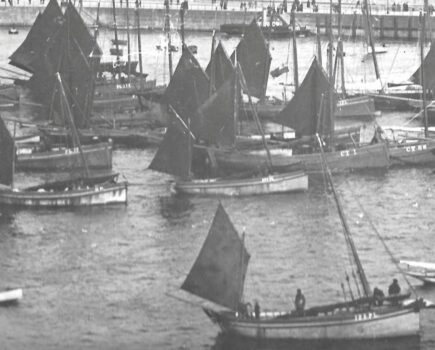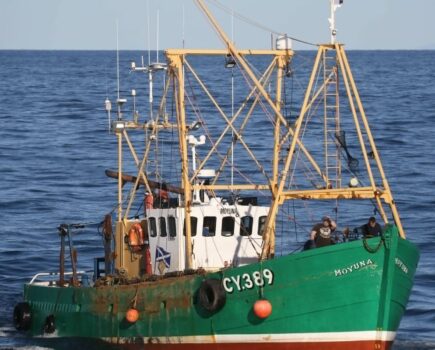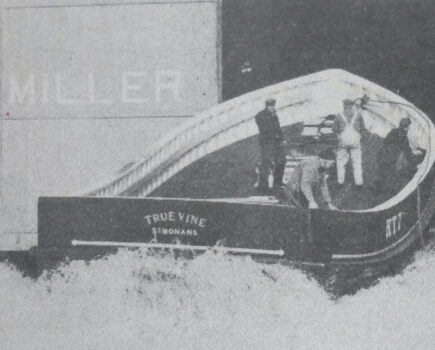The event has a ready-made focus in Packing Shed Island, a sliver of land just off the southwestern point of Mersea Island itself. The eponymous building thereon, dating from 1897, is built on piles to survive spring tides: this is not high, nor particularly permanent, ground; a short-lived predecessor succumbed to a storm, as this one almost did in 1987. Refurbished from an almost skeletal condition in the 1990s, it doesn’t pack oysters these days – it’s available for functions and events – and is the only building on the island, although there are the remains of oyster pits, all relics of the time when oysters were being shipped out by the barrel to London and Europe.
And so it was, that on a gloriously sunny and warm mid-September day, nearly a dozen smacks went dredging, led by the Foreman Smack, traditionally the winner of the previous year’s main prize, the John Frost trophy, for the smack handled and rigged in the most seamanlike and professional manner. This year’s foreman was Marie CK 21, built at Rowhedge on the Colne in 1886.
On board were the West Mersea Mayor, Cllr Carl Poweling, and the Colchester Mayor, Cllr Julie Young, who jointly started the two-hour match by raising the foreman’s flag and casting the first dredge.
Fishing News was aboard Gracie CK 46. She’s 36ft LOA and draws 4ft’ 6in; one of the smaller smacks which were, historically, the workers of the creeks, the bigger topmast smacks being able to work further out. She was built in 1890 in Brightlingsea, although it is not known by whom – one of the few smacks with that gap in her provenance.
The rules for the day were that all contestants must dredge in the same direction as the foreman smack, but with no wind at all for the first half hour, that really came down to drifting on the ebb while the judges’ boat cruised around to make sure all stayed within the marked ground.
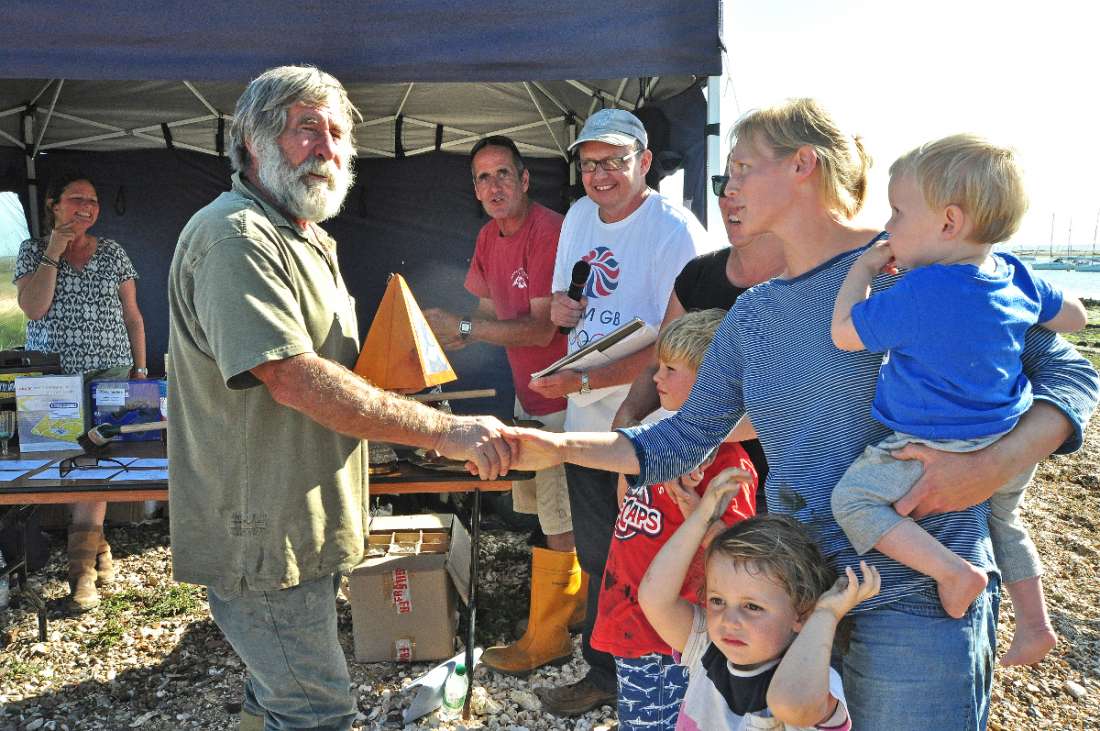
received the John Frost Trophy, presented by this year’s judges: Alison Debney from the Zoological Society of London and Philine zu Ermgassen Fitzwilliam College and Department of Zoology, University of Cambridge, both working with the Essex Native Oyster Restoration Initiative.
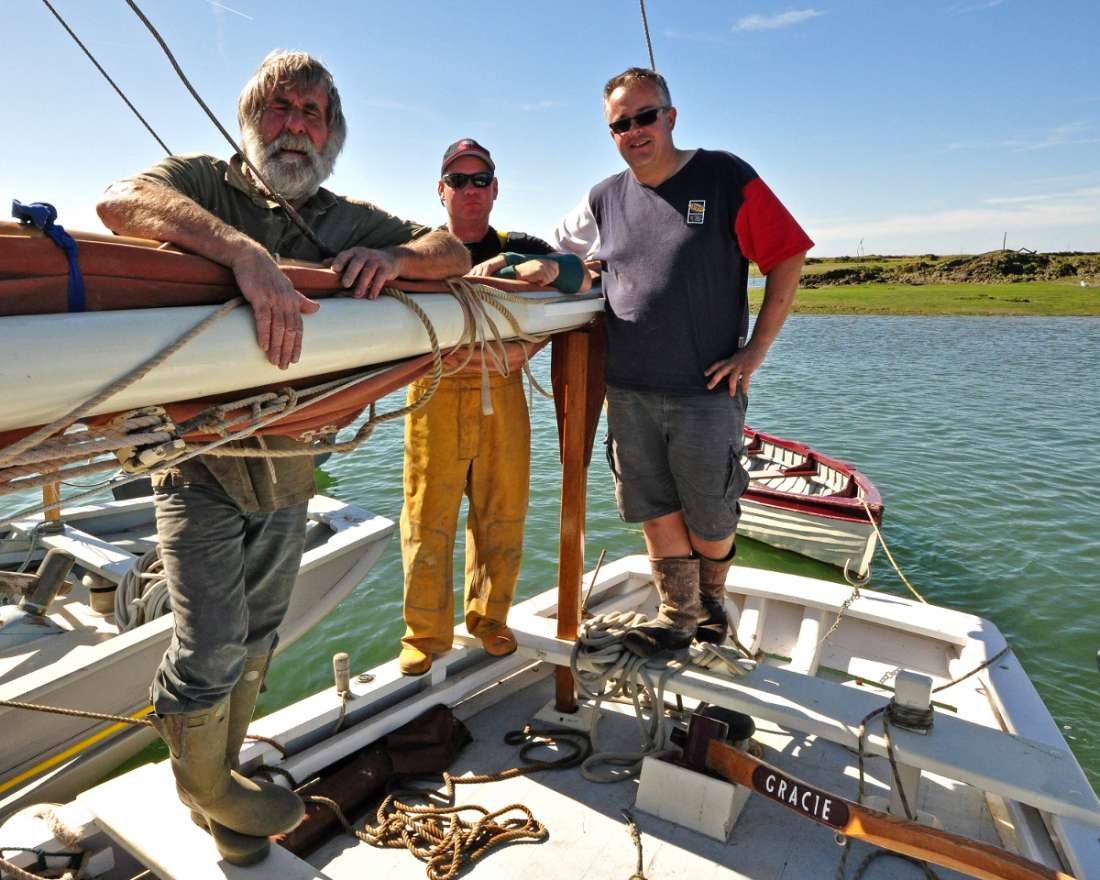
Gracie’s crew and John Frost Trophy winners: left to right – Pinky Hughes, Daniel Hill and Mark Bailey.
Gracie, skippered by Pinky Hughes, one of her three owners, deployed a couple of dredges, but to no immediate avail. Part of the trick was short hauls, because oysters tend to accumulate in patches and while a long haul might find some, it was important to know exactly where, so that the trick could be repeated.
There was a lot of mud, and quite a lot of old shell, but then after an hour, and with the breeze stirring, Pinky struck oyster and, working over the spot a few times, began to fill the box on the deck.
It’s a deceptive creature, edulis, often attached to, and grown on, old shell, and being flat – relatively so compared to gigas at any rate – could escape the notice of the unversed. But Pinky and crew – Daniel Hill and Mark Bailey – were nothing if not versed, as demonstrated back on the island, because there, they were awarded The John Frost Trophy. And so Gracie gets to be Foreman Smack next year, for which Fishing News modestly claims some credit, just for being aboard.
But smack owning isn’t all racing and dredging matches.
“We’ve got to do some caulking this winter,” said Pinky. “Rake all the joints out and replace nails and screws. And I painted the hull earlier this year, and did the antifouling. She doesn’t get hauled out every year – can’t afford that – but you can always find something to do to keep her going. It’s a fulltime job, really.”
But it does have its days like this when – with the sun still shining after the match – crews, passengers and spectators spread out their picnics on the island. The last action of the day was an oyster-opening competition which, out of seven starters, was won by the owner of the Mersea Oyster Bar – but then he has apparently opened a few oysters in his time! Perhaps they should introduce a handicap system. The opened oysters, left on the competition table, didn’t last long, although it should be noted that no oysters dredged on the day were hurt in this process; those were all returned to the sea after weighing, because native oysters in these waters are presently protected as part of the NORI programme.
If NORI continues its progress, and native numbers continue to increase, that might change before too long.
Read more from Fishing News here.

